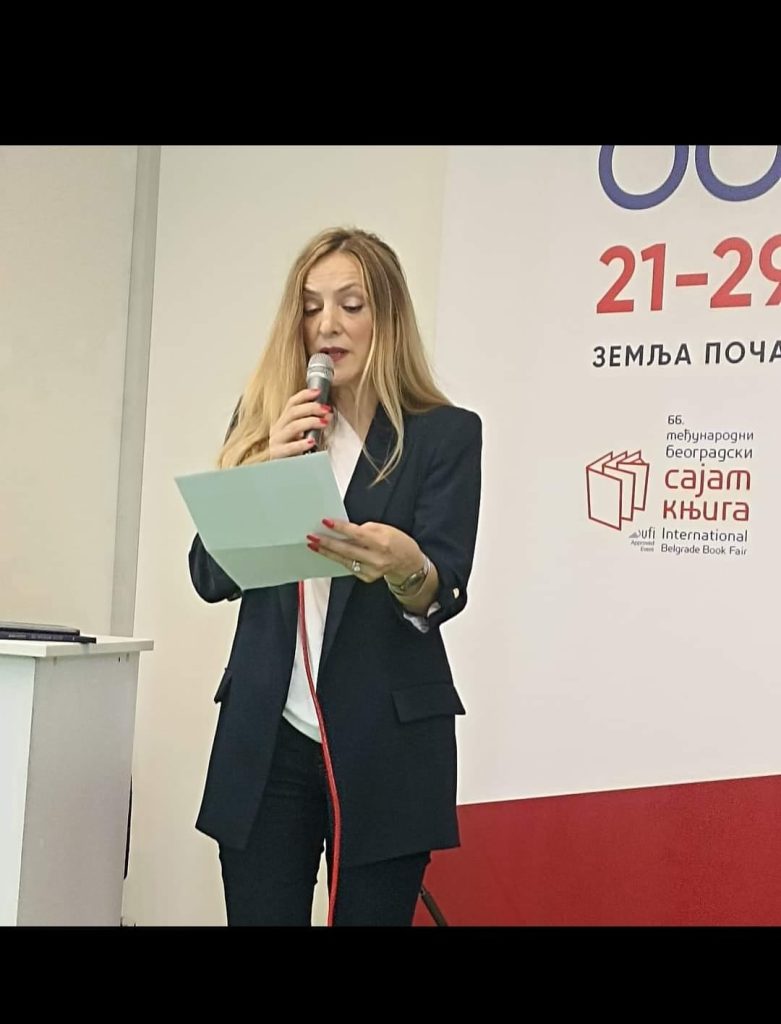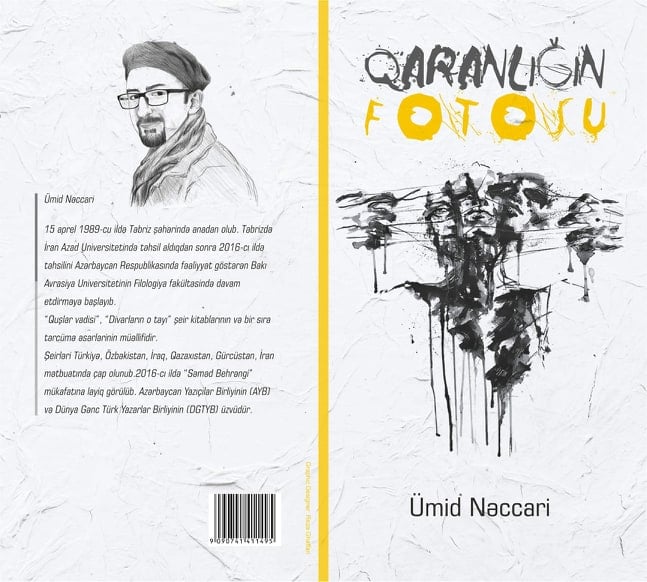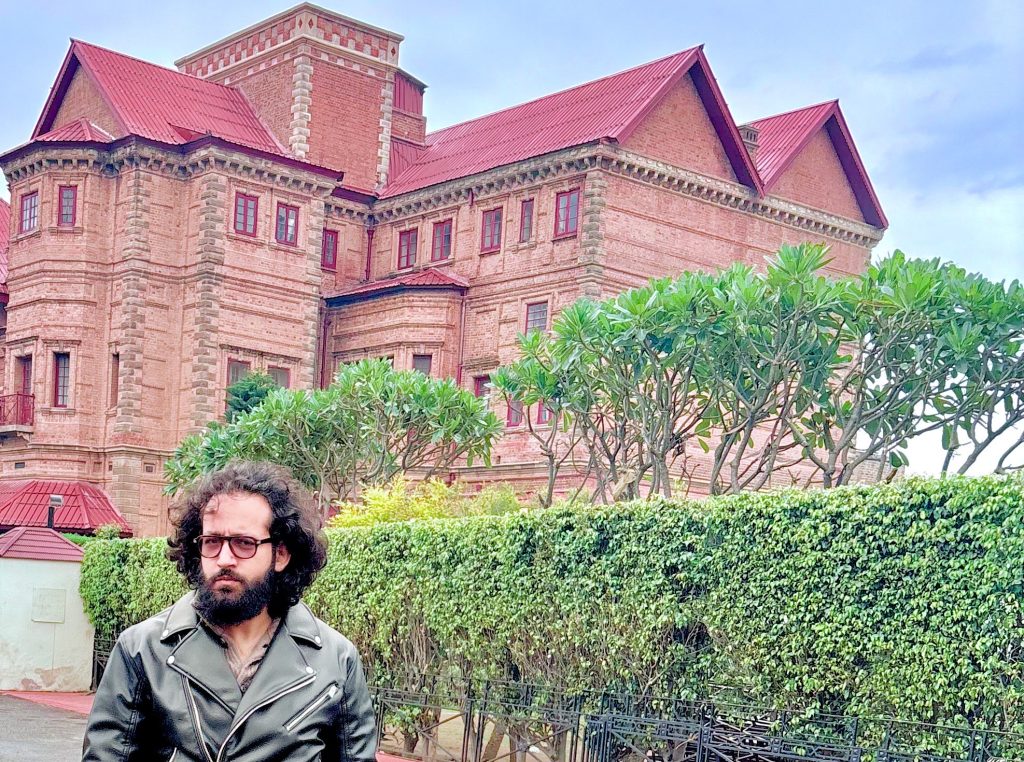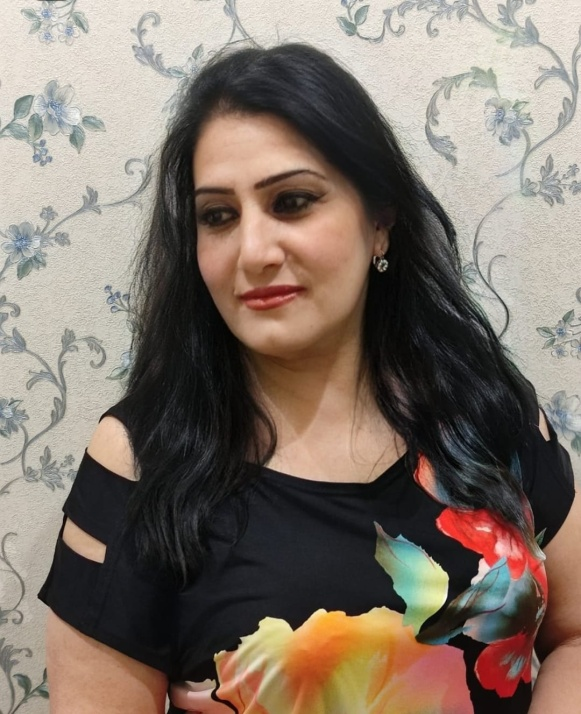
On Umid Najjari’s Poetry
The Collection of Poems “PHOTO OF DARKNESS”
“The sharpness of mind is never born in harmonious conditions” (Haruki Murakami).

If we look at the origin of someone’s poetry through that prism, then Umid Najjari would be its prominent representative. His literary description and narration confirm that he is a highly intellectual and artistically delicate poet. His poetry is not distant or alien and has no boundaries. His fragile written word has a mighty power of artistic creation, and this is exactly the impression given by the poems in his collection Photo of Darkness.
Umid Najjari was born in 1989 in Tabriz – East Azerbaijan Province, in northwestern Iran. After completing his studies at Islamic Azad University of Tabriz (2016), he continued his postgraduate studies at Baku Eurasia University, Faculty of Philology in Azerbaijan. As a writer, journalist and translator, he published the books “The land of the birds” and “Beyond the walls”, which stand out in his work. His poems have been translated into many world languages and published in the USA, Canada, Spain, Italy, Turkey, Uzbekistan, Iraq, Georgia and many other countries. He is the winner of “Samad Behrangi” Award (2016) and “Ali bey Hoseinzadeh” Award (2019). He was awarded the “Mihai Eminescu” Award in 2022. He was awarded the International Prize “Medal Alexandre The Great” in 2022. Najjari has also been elected Vice-President of the BOGDANI international writers’ association, with headquarters in Brussels and Pristina. And he is an active member of the Turkic World Young Authors Association.
By combining life and literary experience, Najjari writes poetry that evokes inviolable sense of depth with his readers. Sometimes pointless and ungenerous descriptions reveal the essence and and let us travel from apparently meaningless to the deep meaningful, from abstraction to real stronghold of events, and by its authenticity they attract the reader to explore further through his poems and to return to them again and again.
A poet of the original style, deep in himself, does not divide the past and the present as the two different spheres, but perceives them as equally dominant and represented with the same intensity in his life.
There is no harmony between them, expressing deep emptiness and loneliness in his life:
“everything seen in a mirror is loneliness…” (the poem “A homeland as big as umbrella”).
There are many and diverse relationships present in the poem, from immeasurable love to immeasurable nostalgia.
As the themes of Najjari’s poetry, besides longing and helplessness ‘the shadow of longing enters us….sometimes the laughter is the last breath of crying’ (The Shadow of Longing), the poets draws hints of tragedy in his descriptions – ‘sad black stones in cemeteries’ (The Shadow of tree) that sometimes even have apocalyptic tones.
Night pains…
Darkness shot into his lap….
So we cannot fly …” (,, I Fire a Match”)
(implication of despair, variation of sorrow and suffering, a step curled up in despair)
…
‘a pile of fire on the cross…’
Rebellious, unstoppable restlessness of fire is a picture of eternal movement, a world full of opposites, the scene of the constant struggle of opposing forces of light and darkness….. Heraclitus)
The light is a reflection of hope, and the frequent return to a night in poems reminds us of torturous reality, and various sides of dark forces and evil fate of the centuries…
His poetry weeps over the fate of the world, over darkness, without a stronghold of posterity. In his poem The Symphony of Separation he tries to find an escape in oblivion. The lack is strong (Telegram), passing through an awareness of freedom of choice and the need to live.
The poem Absurd mentions Zarathustra, the ancient philosopher, underlining his idea of the essence of our existence represented by the constant struggle between light and darkness, good and evil.
The unequal verses and intermittent rhythm of his poetry remind us of Mayakovsky’s writing. He even mentions him in the same poem by saying: ,,The side of Mayakovsky in my body hurts’, emphasizing the lyrical creation of the suicidal instinct and near death….
Above all the poet glorifies love, in various relations, as the most important and motivating thought in the essence of our being:
‘Open your hands, protect me from the winds, keep me from drying out my eyes….’ (‘They are all excuse’).
This is just one of the possible interpretations of Umid Najjari’s individual and extraordinary poetry.
Andrejana Dvornić, professor and writer
Belgrade, Serbia
Haruki Murakami* – 1Q84 (Book 1)



